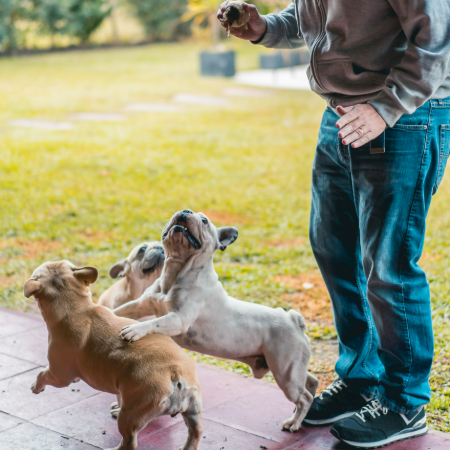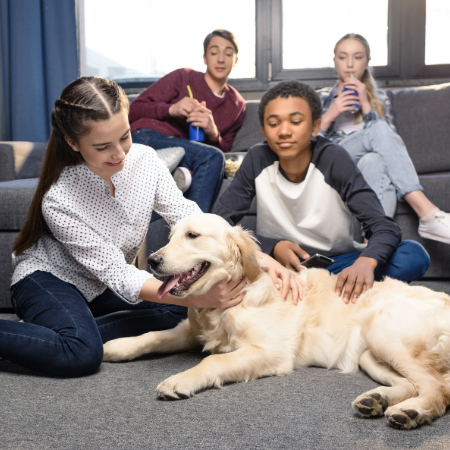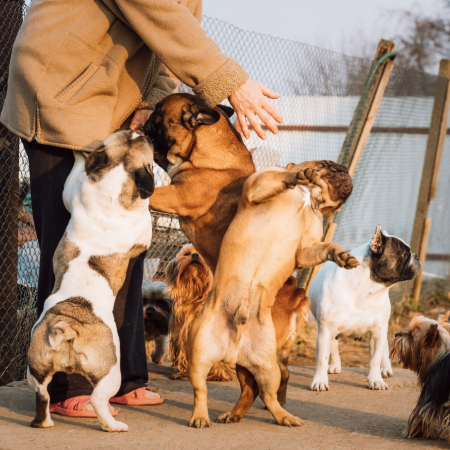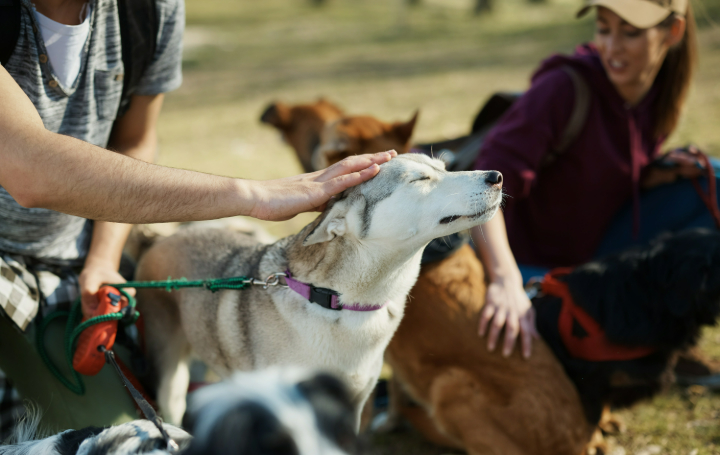The Importance of Dog Socialization Classes: Building Confidence
If you’ve recently welcomed a new dog into your life, or if your furry friend is having trouble making friends, socialization classes might just be the missing puzzle piece. Dog socialization classes are a key part of raising a well-adjusted, confident, and happy pet. Much like how humans learn social skills by interacting with others, dogs need these experiences too. In fact, the benefits of proper socialization go far beyond just teaching your dog to “sit” or “stay.” Let’s dive into why dog socialization classes are so important and how they help build confidence in your pup!
What is Dog Socialization?
Before we talk about why these classes are important, let’s break down what socialization means for your dog. Socialization is the process of exposing your dog to new people, animals, environments, and experiences in a controlled and positive way. The goal is to help your dog feel comfortable and confident in various situations, reducing the chances of fear, anxiety, or aggression later on.

For a puppy, this could mean getting them used to a variety of sights, sounds, and smells—like car rides, different types of flooring, or meeting new friends at the dog park. For adult dogs, socialization might focus more on learning how to interact appropriately with other dogs or humans in different environments.
Why Socialization Classes are a Game-Changer
So, what makes socialization classes so special? Why not just let your dog figure things out on their own? While it’s true that some dogs are naturally more confident than others, even the most outgoing dog can benefit from structured learning and exposure. Here are a few reasons why enrolling in socialization classes can make a world of difference:
1. They Help Build Confidence
One of the most important aspects of socialization classes is building your dog’s confidence. Dogs that lack socialization may be fearful of new experiences or interactions. Whether it’s meeting a larger dog, encountering a strange object, or hearing loud noises, a lack of exposure can make your dog anxious or reactive.
Socialization classes give your dog a safe space to learn about the world. In a controlled environment, your dog will gradually face new experiences at their own pace. Over time, this helps them learn that new situations aren’t scary—they’re just part of life. The more your dog is exposed to, the more they’ll grow in confidence.
2. They Prevent Behavioral Issues
Without proper socialization, dogs are more likely to develop behavioral problems. For instance, if a dog isn’t used to being around other dogs, they might become aggressive or overly excited when they meet one. Dogs that haven’t been socialized may also develop separation anxiety, excessive barking, or nervous habits.
Socialization classes help prevent these issues by exposing dogs to different types of environments, people, and situations in a safe and controlled way. The goal is to prevent fear-based reactions, which often turn into behavioral problems. With the guidance of a trained professional, your dog can learn how to respond appropriately, rather than getting overwhelmed or anxious.
3. They Teach Good Manners
Doggy etiquette is just as important as socialization. Socialization classes are an excellent opportunity for your dog to learn basic manners, like sitting politely when meeting new people, walking calmly on a leash, and respecting boundaries with other dogs. These are skills that will benefit your dog for a lifetime, making outings and everyday life more enjoyable for both of you.

In a socialization class, your dog will get the chance to practice these skills with other dogs and people in a controlled setting. It’s a great way to reinforce positive behaviors, while also correcting unwanted ones in a constructive environment.
4. They Strengthen the Bond Between You and Your Dog
As a pet owner, your relationship with your dog is incredibly important. The more time you spend working together in socialization classes, the stronger your bond will become. Training your dog isn’t just about teaching them commands—it’s about building trust and communication. When you guide your dog through different experiences and challenges in a class, your dog learns to look to you for reassurance and direction.
This trust and teamwork lay the foundation for a stronger relationship. Plus, your dog will feel more secure in their interactions with the world, knowing they have you by their side.
5. They Make Real-Life Situations Easier
Imagine this: you’re walking your dog through the park, and they suddenly start barking and pulling at the leash when they see another dog. It’s stressful for both you and your dog. However, if your dog has attended socialization classes, they’ve already learned how to stay calm and confident when meeting other dogs. This makes outings more enjoyable and less stressful for both of you.
Socialization classes also prepare dogs for other real-life situations, like visits to the vet, trips to the groomer, or family gatherings. With the right socialization, your dog will learn how to remain calm and relaxed during these experiences, making your life as a pet owner much easier.
When Should You Start Socialization?
The best time to start socialization is early—ideally during puppyhood. Between the ages of 3 and 14 weeks, puppies are in a critical developmental period where they’re most receptive to learning about the world. However, it’s never too late to start socializing your dog. Even adult dogs can benefit from socialization classes, though it may take a little more time and patience for them to adjust.
The key is to start at a pace that’s comfortable for your dog. Some dogs are naturally more outgoing, while others might need a little extra encouragement. That’s why socialization classes are so helpful—they’re led by experienced trainers who know how to support dogs of all temperaments.
What to Expect in a Socialization Class
If you’re considering enrolling your dog in a socialization class, you might be wondering what to expect. Here’s a quick rundown of what typically happens during a class:

- Introductions: Your dog will be introduced to other dogs in the class, usually one at a time. This allows your dog to get used to the presence of other dogs without feeling overwhelmed.
- Exposure to New Experiences: Classes often include various obstacles, like tunnels, ramps, or even different types of flooring. These challenges help your dog build confidence in unfamiliar environments.
- Positive Reinforcement: During the class, your dog will receive positive reinforcement for good behavior. This might include treats, praise, or playtime.
- Guidance from Trainers: Experienced trainers will provide guidance and tips for helping your dog interact with others in a calm, respectful way.
Each class is designed to help your dog become more comfortable in different situations and to reinforce good behavior. It’s all about making new experiences enjoyable, not stressful.
Conclusion
Dog socialization classes are an essential part of raising a well-rounded, confident dog. Whether you’re raising a puppy or working with an adult dog, these classes help reduce behavioral issues, build confidence, and strengthen your bond with your pet. With the right training and exposure, your dog will become more comfortable and well-behaved in a variety of situations, making life as a pet owner much more enjoyable.
So, if you haven’t already, consider enrolling your dog in a socialization class today. It’s an investment in your dog’s well-being—and in your relationship with them!
Tags










